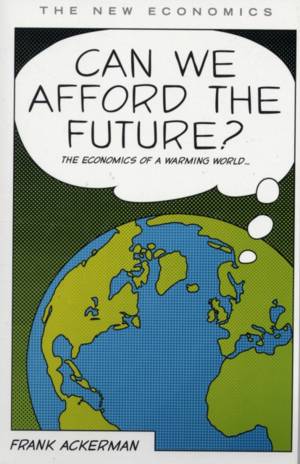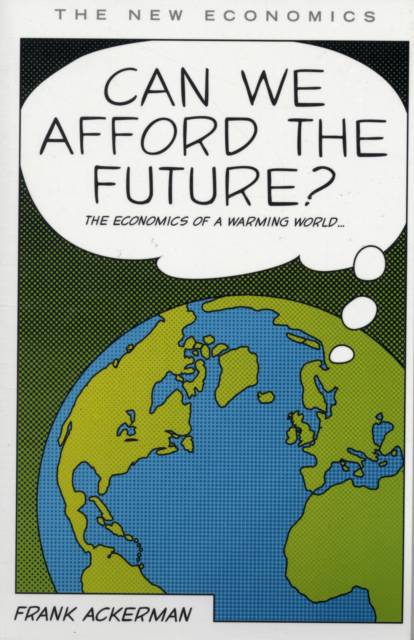
Bedankt voor het vertrouwen het afgelopen jaar! Om jou te bedanken bieden we GRATIS verzending (in België) aan op alles gedurende de hele maand januari.
- Afhalen na 1 uur in een winkel met voorraad
- In januari gratis thuislevering in België
- Ruim aanbod met 7 miljoen producten
Bedankt voor het vertrouwen het afgelopen jaar! Om jou te bedanken bieden we GRATIS verzending (in België) aan op alles gedurende de hele maand januari.
- Afhalen na 1 uur in een winkel met voorraad
- In januari gratis thuislevering in België
- Ruim aanbod met 7 miljoen producten
Zoeken
€ 55,95
+ 111 punten
Uitvoering
Omschrijving
According to many scientists, climate change is a growing threat to life as we know it, requiring a large-scale, immediate response. According to many economists, climate change is a moderately important problem; the best policy is a slow, gradual start, to avoid spending too much. They can't both be right. In this book, Frank Ackerman offers a refreshing look at the economics of climate change, explaining how the arbitrary assumptions of conventional theories get in the way of understanding this urgent problem. The benefits of climate protection are vital but priceless, and hence often devalued in cost-benefit calculations. Preparation for the most predictable outcomes of global warming is less important than protection against the growing risk of catastrophic change; massive investment in new, low carbon technologies and industries should be thought of as life insurance for the planet. Ackerman makes an impassioned plea to construct a better economics, arguing that the solutions are affordable and the alternative is unthinkable. If we can't afford the future, what are we saving our money for? Can we Afford the Future? is part of The New Economics series, which uses the ideas behind a new, more human economics to provide a fresh way of looking at major contemporary issues.
Specificaties
Betrokkenen
- Auteur(s):
- Uitgeverij:
Inhoud
- Aantal bladzijden:
- 160
- Taal:
- Engels
Eigenschappen
- Productcode (EAN):
- 9781848130388
- Verschijningsdatum:
- 15/12/2008
- Uitvoering:
- Paperback
- Formaat:
- Trade paperback (VS)
- Afmetingen:
- 127 mm x 193 mm
- Gewicht:
- 181 g

Alleen bij Standaard Boekhandel
+ 111 punten op je klantenkaart van Standaard Boekhandel
Beoordelingen
We publiceren alleen reviews die voldoen aan de voorwaarden voor reviews. Bekijk onze voorwaarden voor reviews.









